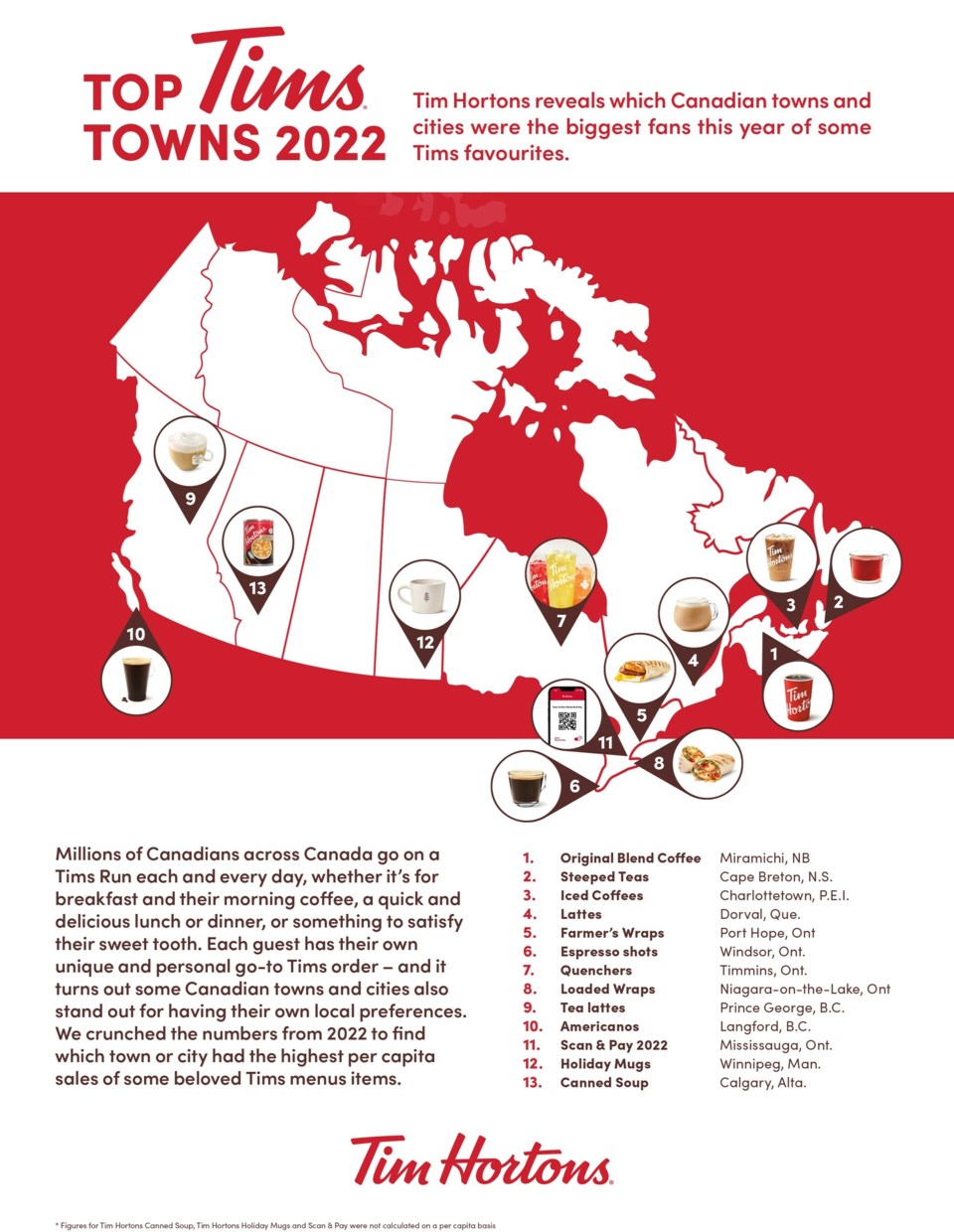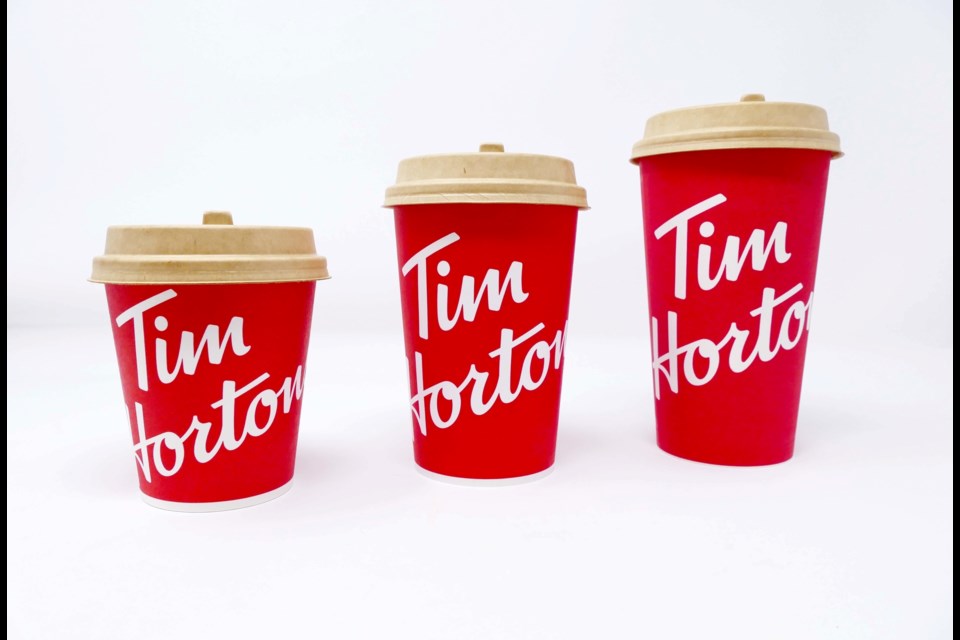O sa���ʴ�ý—the homeland of Tim Hortons.
The infamous coffee chain was founded by Ron Joyce and hockey pro Tim Horton in 1964 in Hamilton, Ontario, sa���ʴ�ý.
Although it started off as a Canadian company, it's also true that in 1995, Tim Hortons was bought out by U.S. fast food chain Wendy's, and later, in 2014, U.S.-Brazil investment firm 3G Capital, which merged Tim Hortons with Burger King under a new parent company called Restaurant Brands International (RBI).
Despite the buyouts, this once-humble coffee chain continues to be a household name across the nation: part of the Canadian fabric.
Every day, many Canadians buy their cup of coffee and doughnuts from Tim Hortons. But not every city enjoys the same menu items. In fact, the company released data on which cities preferred which Tim Hortons items in 2022, based on the highest per capita sales.
No double-double, please!
Two sa���ʴ�ý cities made it on the list: Langford, and Prince George.
Langford, residents were all about americanos—simple yet effective. Meanwhile, in Prince George, people preferred tea lattes over regular coffees.
Out of all the Canadian cities, Miramichi, N.B. had the highest per capita sales for the Original Coffee Blend.

New year, new packaging
As of Dec. 20, the federal government announced the official ban on single-use plastics, including cutlery, stir sticks, and straws, to reduce plastic pollution.
In order to adapt to the new regulation, Tim Hortons announced their switch from plastics to wooden and fibre cutlery, offering reusable bags starting in the new year.
At present, the coffee chain is trialing the fibre hot beverage lid in the City of Vancouver, which will run for 12 weeks.
"Through our sustainability platform Tims for Good, we're always looking for ways, big and small, to make thoughtful choices on material and design in order to reduce and eliminate packaging and contribute to more sustainable innovation," said Paul Yang, senior director of procurement, sustainability and packaging at Tim Hortons in a press release.
Also in Vancouver, Tim Hortons launched a pilot project with Return-It which allows patrons to pay a deposit for reusable and returnable cups, which launched in the spring of this year.



